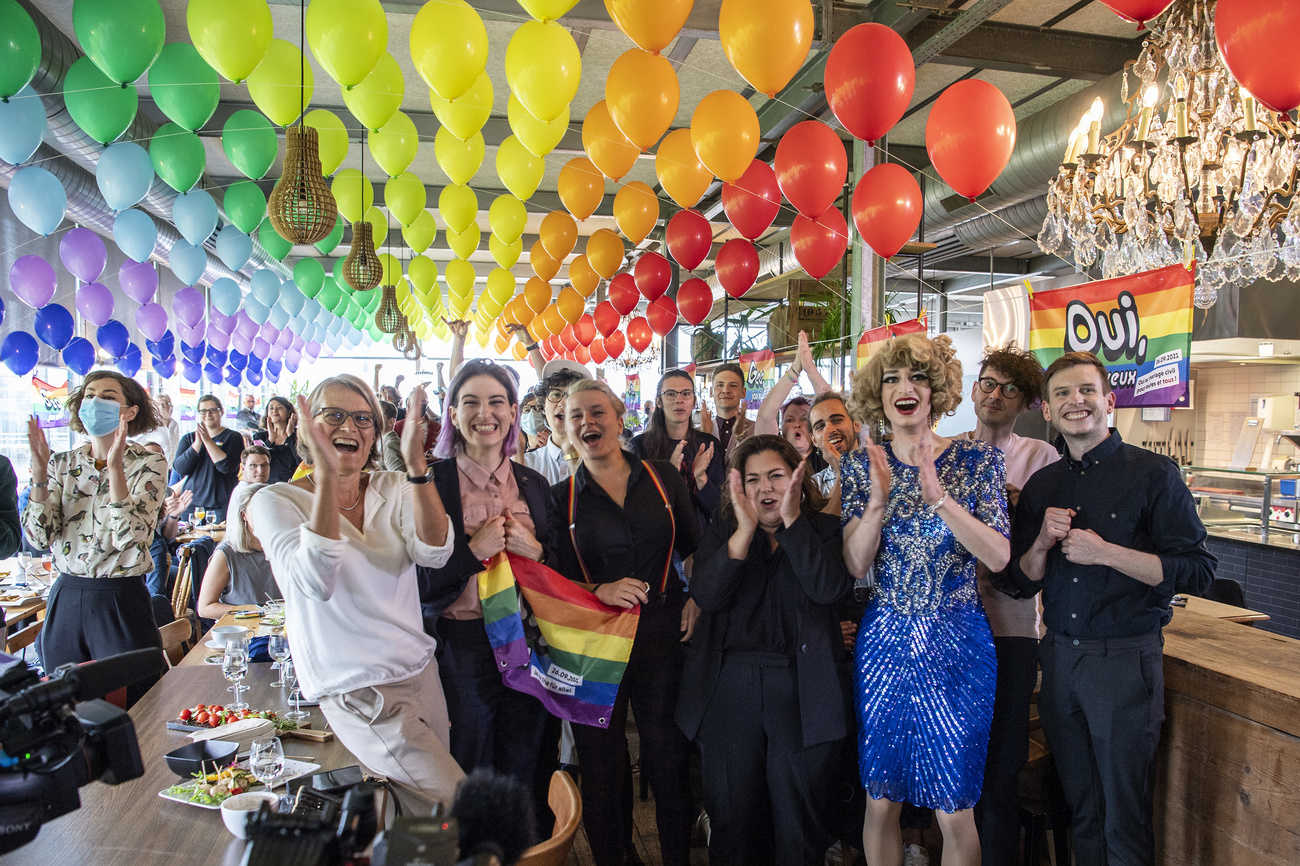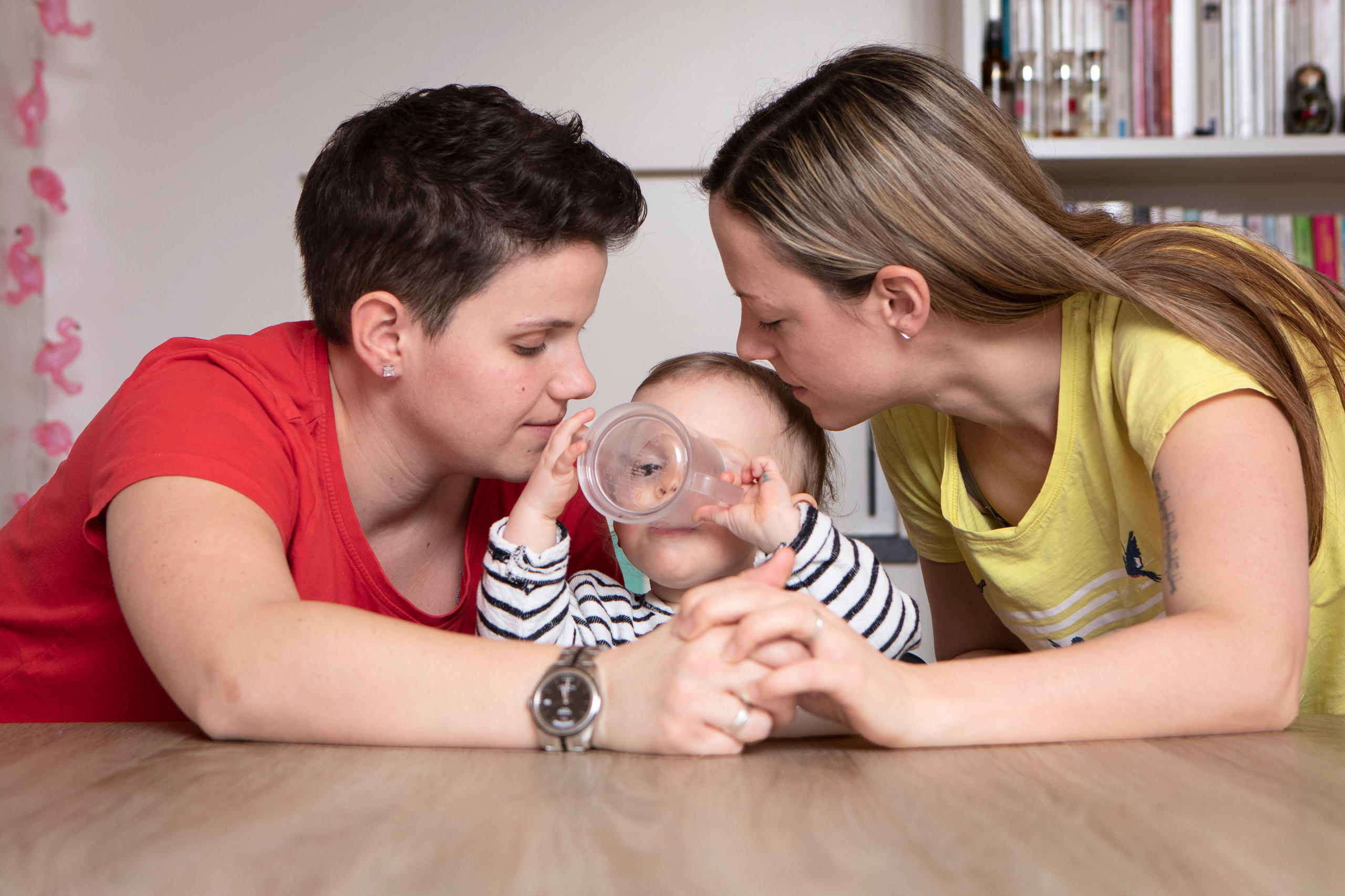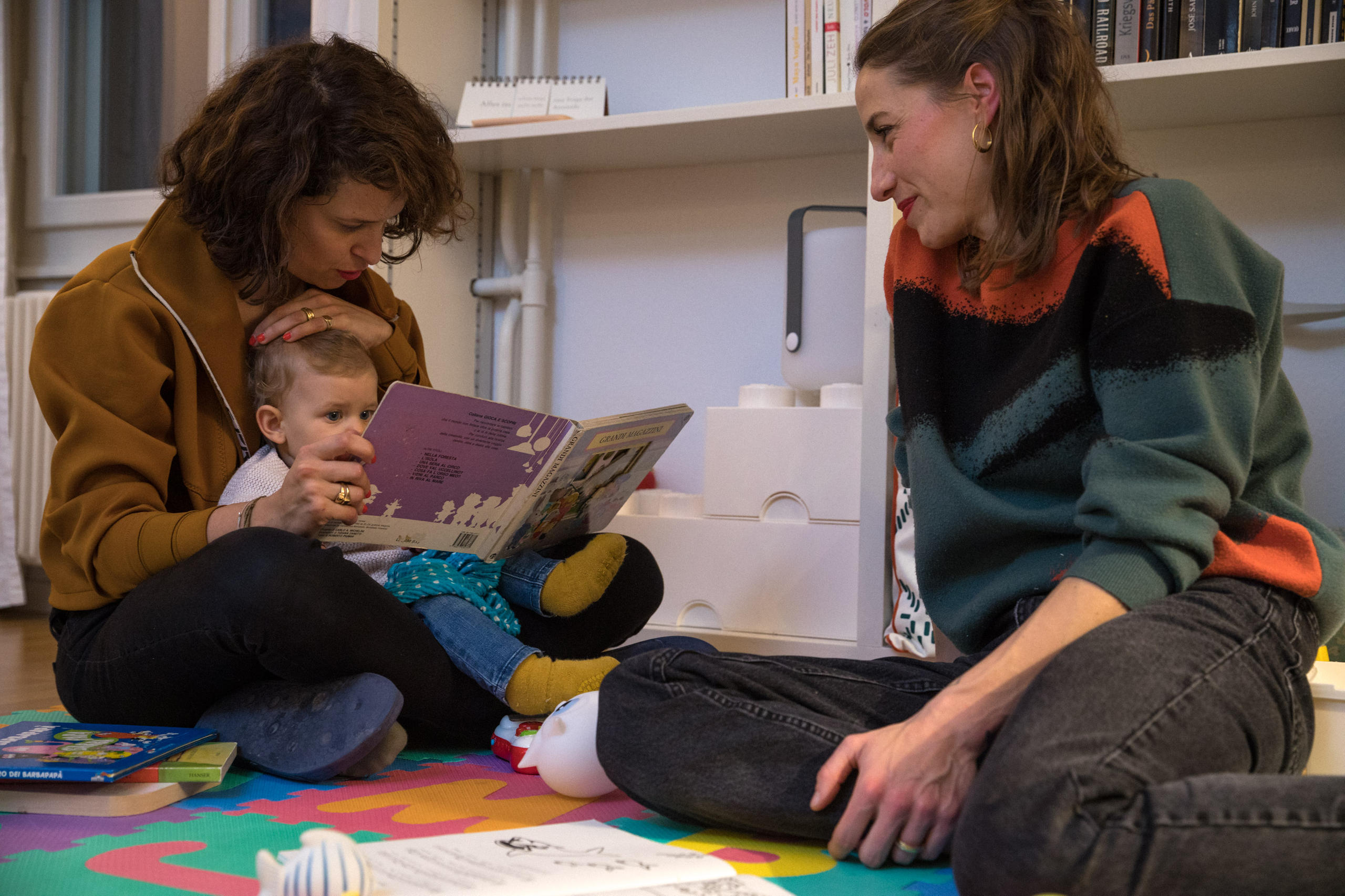‘Marriage for all’ wins thumping approval of Swiss voters

A law granting full marriage and adoption rights to same-sex couples has been accepted by almost two-thirds of citizens.
The result on Sunday makes Switzerland the 30th country worldwide – and one of the last in Western Europe – to extend civil marital status to male-male and female-female couples.
Some 64.1% of voters accepted the reform, and none of the 26 cantons came out against; small Appenzell Inner Rhoden, where 50.8% accepted the proposal, was most hesitant.
The government welcomed the result, with Justice Minister Karin Keller-Sutter telling journalists in Bern it meant the end of “current inequalities of treatment”, and that the state “would not impose on citizens how they should lead their lives”.
“Nothing has changed for male-female couples,” Keller-Sutter added.
Opponents, who led a campaign more focussed on child welfare than on same-sex marriage as such, clearly didn’t manage to overturn what Lukas Golder of the Gfs Bern research institute called a “mega-trend” towards more diversity.
Olga Baranova, director of the campaign in favour of marriage for all, told the Keystone-SDA news agency that the result was a signal that the population views same-sex couples as equally valid, both as partners and as parents.
Since the 2007 introduction of a civil partnership act, such couples have had many of the same rights as their heterosexual peers. Now, they will also be able to jointly adopt children – rather than only children parented by one of them – while lesbian couples can access sperm donations and medically assisted procreation procedures.
Same-sex couples will also be able to apply for the facilitated citizenship process already available to foreign spouses of Swiss citizens.
Child-centred opposition campaign
The change to the civil code, backed by government and most political parties, was approved in parliament last December, but was challenged to referendum by opponents who collected the necessary 50,000 signatures.
On Sunday the campaign director of the “no” side, Anian Liebrand, told public broadcaster SRF he had no regrets in having brought the issue to a vote.
The opponents – who included the rightwing People’s Party and some members of the Centre and Evangelical parties – raised “important questions”, Liebrand said, in particular the question of sperm donation rules and the well-being of children.
Throughout the campaign, opponents had argued that the right of lesbian couples to access sperm banks in Switzerland – where the name of the donor is only accessible to the child after age 18 – effectively deprived children of the right to a father.
Monika Rüegger of the People’s Party told Keystone-SDA on Sunday it was a “black day” for children. The controversial question of sperm donation had been forced through under the cloak of the “uncontroversial” question of marriage equality, she said.
Surrogacy fears
Rüegger also raised another of the recurring fears of the “no” side during the campaign: that the vote would lead to future proposals for surrogacy procedures or egg donations.
The spectre of such practices – which are illegal in Switzerland – were notably smeared across provocative campaign posters showing “zombie fathers” and exploited surrogate mothers. Surrogacy is not mentioned in the new legislation.
As for the 11,500 couples who have entered civil partnerships since 2007, they can either choose to keep their current status or to convert it to a full marriage. The civil partnership option will no longer be available in future.
The first same-sex marriages will be possible from July 2022, Keller-Sutter said on Sunday.
Same-sex marriage: 64.1% yes, 35.9% no
Capital gains tax: 35.1% yes, 64.9.% no
Turnout: 52.6%
About 5.5 million Swiss citizens, including registered expat Swiss, were eligible to take part in the votes.
There were also additional ballots in many of the country’s 26 cantons and at local levels on September 26.

In compliance with the JTI standards
More: SWI swissinfo.ch certified by the Journalism Trust Initiative











You can find an overview of ongoing debates with our journalists here . Please join us!
If you want to start a conversation about a topic raised in this article or want to report factual errors, email us at english@swissinfo.ch.